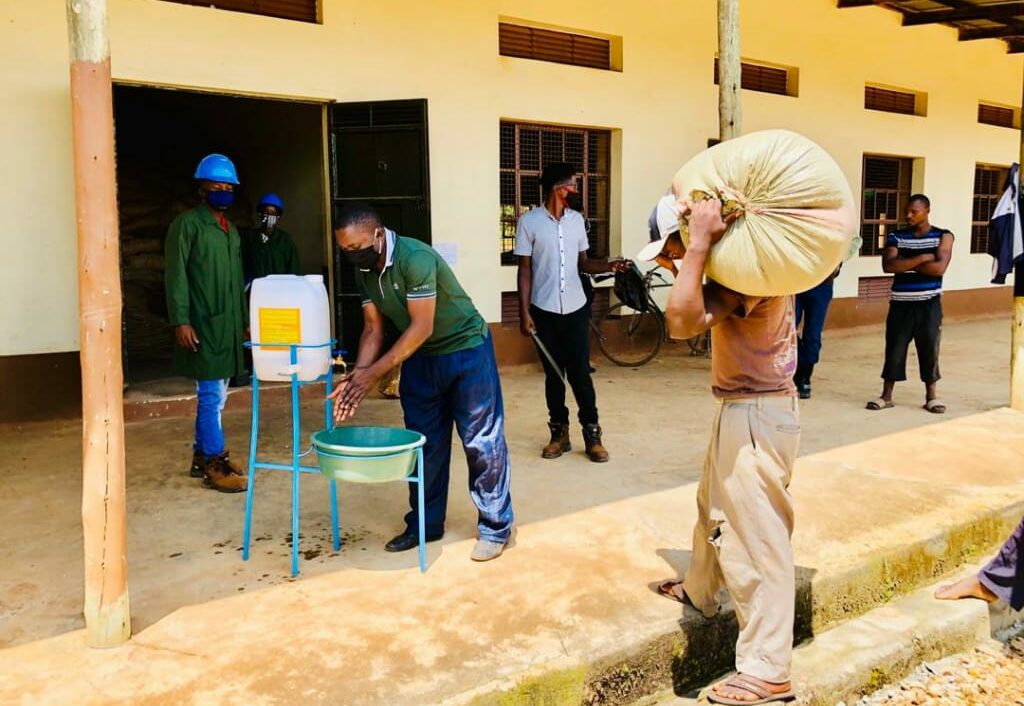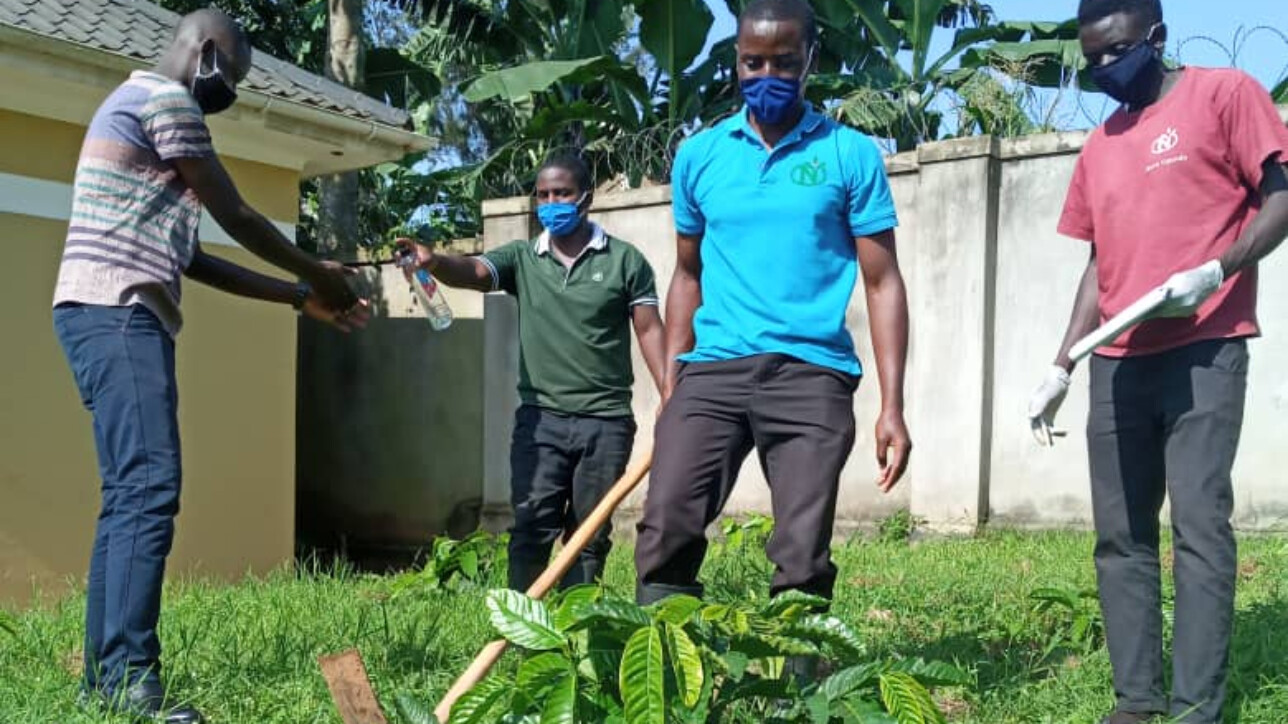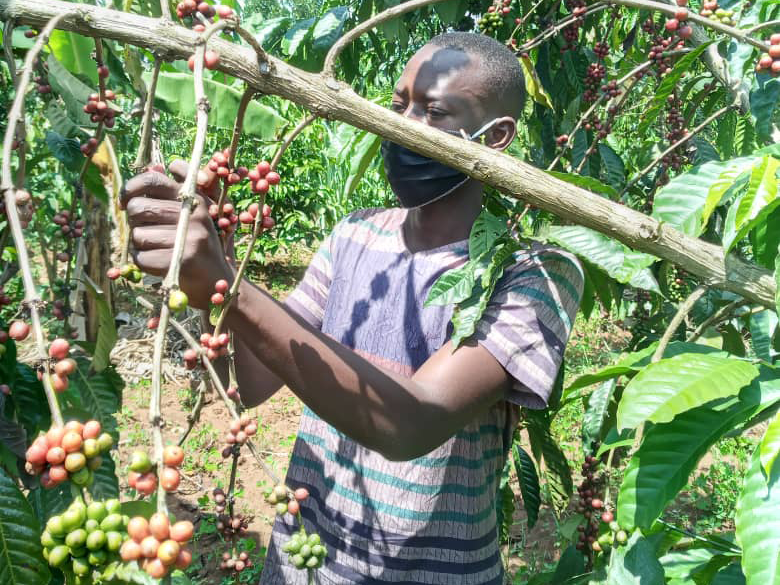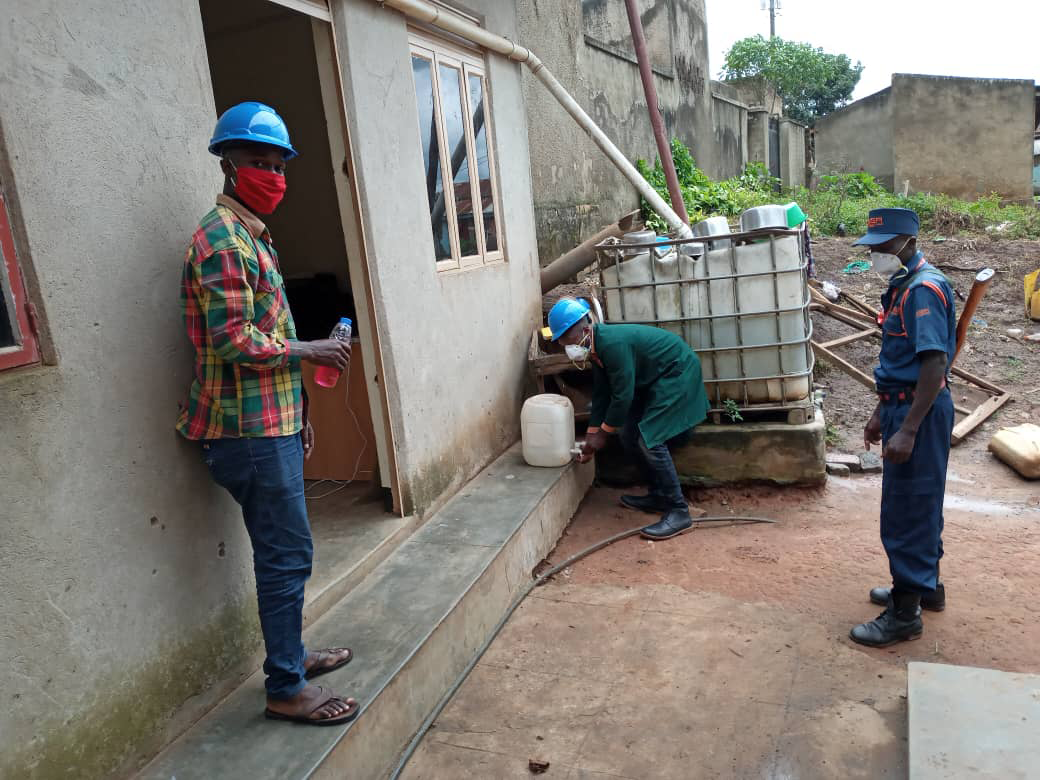By Gabrielle Rosenau, June 2020
On March 18, when the government of Uganda implemented the first national measures to prevent the spread of COVID-19, we at NKG BLOOM were still finishing a major distribution of fertilizer. We quickly transitioned from the usual, large gatherings to small, local distributions, to ensure that we could maintain safety distances and protect our team and farmers.
We were all relieved that we managed to deliver the requested fertilizer in time for the farmers to apply it with the rains. But the period of relaxation that usually follows a disbursement round did not set in.
Instead, we were faced with many of our young Field and Risk officers stuck in villages far from their families, and with uncertainty among farmers about the future.

We ourselves were also uncertain, as we wondered about the duration of the measures and the implications they would have on our work, which is based on maintaining close relationship with farmers. Still, prioritizing the health of our team and farmers, we halted all field activities and determined that our Kampala staff should work from home.
Since then, we have worked on, and continue to work on, finding solutions to further our services for farmers, while keeping everyone safe. We started with internal trainings and materials for the team, to inform them about how to prevent the spread of COVID-19. And then we extended the knowledge to farmers, as we called every single one of them to learn how they are doing and, when needed, give them advice about on how they can protect themselves.
Eventually, we also went back into the field to pay visits, wearing masks and walking long distances, as cars couldn’t be hired until mid-May and motorcycle can only transport goods and not people.
While the times have been challenging, we are proud to see that our team is more motivated than ever to support farmers, and that farmers remain committed to coffee and NKG BLOOM. Efforts to digitize— like mobile money payments, applications for advances and balance checks via USSD codes—have provided great advantages for us, as we continue our work, and we are exploring new ways to bring knowledge to farmers digitally.
Still, at the end of the day, coffee is a physical product and needs to be moved by people. The buying stations we set up this year have been very supportive and have worked to implement safety measures and ensure that farmers can continue to safely bring their coffee to us. Both in moving toward digitalization and shortening supply chains, COVID-19 has served as a catalyst, accelerating modern developments.
Standing jointly with the Ugandan coffee sector, Ibero Uganda and Kaweri, we’re proud to have contributed to Ugandan government’s effort to fight COVID-19 and support the country’s vulnerable populations.




